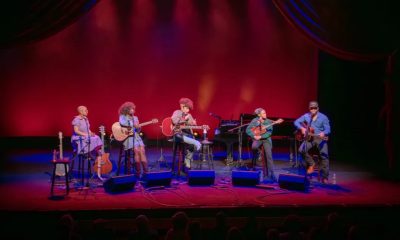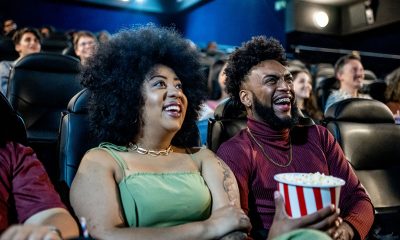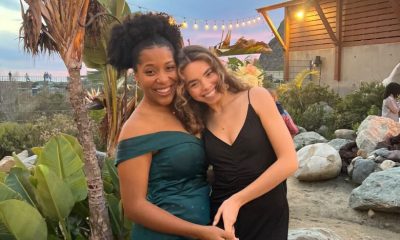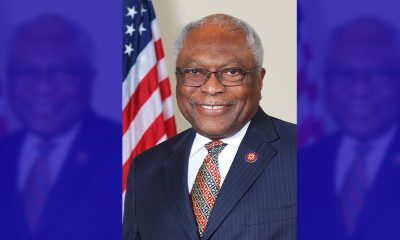Community
Questions Answered About the COVID-19 Vaccine
As a primary care doctor at the Kaiser Permanente Oakland Medical Center, I get a lot of questions about the vaccines. Many people are confused because they are the first of their kind. I also understand our community’s history of being mistreated by the medical profession, and our ongoing health disparities can make it hard to trust the health care system.
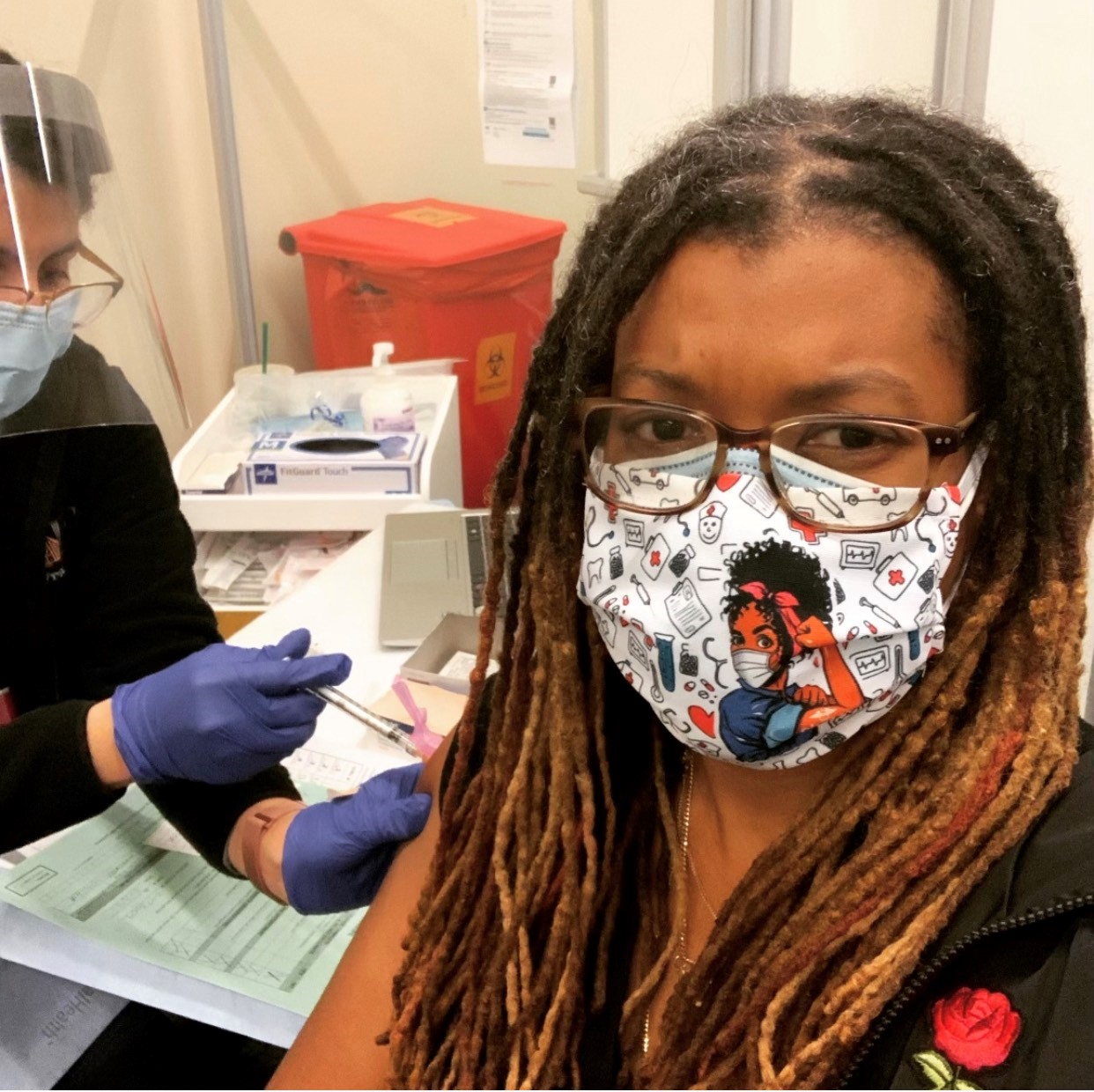
My 67-year-old mom recently called to let me know she’d gotten her first dose of the COVID-19 vaccine. She said it went well, but she was surprised she was the only Black or Brown person she noticed getting the vaccine.
My mom isn’t the only one concerned about this. We know that Black and Brown communities are getting the virus more and are dying at higher rates than white communities, but fewer of us are getting the COVID-19 vaccine.
As a primary care doctor at the Kaiser Permanente Oakland Medical Center, I get a lot of questions about the vaccines. Many people are confused because they are the first of their kind. I also understand our community’s history of being mistreated by the medical profession, and our ongoing health disparities can make it hard to trust the health care system.
Below are some answers to questions that come up often with my patients, family and friends.
The vaccines were developed quickly. Are they safe?
Yes, they are safe. The vaccines were developed quickly because the new mRNA technology we hear so much about was already in the works, and because the federal government provided significant financial and other support to vaccine developers. A safety board approved every study, and the FDA carefully reviewed the data from every phase of every vaccine trial. I looked carefully at the science and the data and based on that — I decided it was safe to get vaccinated.
Does it alter your DNA?
It does not. The COVID-19 vaccine is a new type of vaccine that uses mRNA not DNA. mRNA teaches our cells to make specific proteins that stimulate our immune system to create antibodies to a virus. This keeps us from getting sick. mRNA does not interact with or alter DNA. In fact, cells break down and get rid of mRNA after it does its job.
Does it contain the COVID-19 virus?
No. The COVID-19 vaccine does not contain the virus and will not give you COVID-19.
Were communities of color part of the vaccine clinical trials?
Yes. Vaccine trial participants were from diverse racial and ethnic backgrounds, 10% African American/Black and 13-20 % Latinx. They also included a significant number of people greater than 55 years old.
What about side effects?
You may have mild to moderate side effects in the first 24 to 36 hours, and that’s normal. It’s a sign your body is building immunity against the virus. Some common side effects are fever, fatigue, headache, chills, muscle and joint pain. An extremely small number of people who have a prior history of allergies to vaccines have had an allergic reaction, which is why you will be monitored for 15 to 30 minutes after getting the vaccine. If you do have vaccine allergies, you should discuss the vaccine with your doctor.
Whether or not you decide to get vaccinated is an important personal decision. I decided to get the vaccine because I believe it’s our best tool to end the pandemic and the suffering it’s caused in our communities.
There have been challenges with getting enough vaccine supply, and Kaiser Permanente, like other health care systems, is working to get more. We’re also working to ensure we’re giving the vaccine equitably, making sure people who are at highest risk of getting infected, or dying from COVID-19, get vaccinated first.
Dr. Nailah Thompson is an internist with The Permanente Medical Group at the Kaiser Permanente Oakland Medical Center. Learn more about COVID-19 vaccine myths and facts at the CDC website.
Activism
Oakland Post: Week of April 24 – 30, 2024
The printed Weekly Edition of the Oakland Post: Week of April 24 – 30, 2024

To enlarge your view of this issue, use the slider, magnifying glass icon or full page icon in the lower right corner of the browser window. ![]()
Alameda County
DA Pamela Price Stands by Mom Who Lost Son to Gun Violence in Oakland
Last week, The Post published a photo showing Alameda County District Attorney Pamela Price with Carol Jones, whose son, Patrick DeMarco Scott, was gunned down by an unknown assailant in 2018.

Publisher’s note: Last week, The Post published a photo showing Alameda County District Attorney Pamela Price with Carol Jones, whose son, Patrick DeMarco Scott, was gunned down by an unknown assailant in 2018. The photo was too small for readers to see where the women were and what they were doing. Here we show Price and Jones as they complete a walk in memory of Scott. For more information and to contribute, please contact Carol Jones at 510-978-5517 at morefoundation.help@gmail.com. Courtesy photo.
City Government
Vallejo Welcomes Interim City Manager Beverli Marshall
At Tuesday night’s Council meeting, the Vallejo City Council appointed Beverli Marshall as the interim city manager. Her tenure in the City Manager’s Office began today, Wednesday, April 10. Mayor Robert McConnell praised Marshall’s extensive background, noting her “wide breadth of experience in many areas that will assist the City and its citizens in understanding the complexity of the many issues that must be solved” in Vallejo.

Special to The Post
At Tuesday night’s Council meeting, the Vallejo City Council appointed Beverli Marshall as the interim city manager. Her tenure in the City Manager’s Office began today, Wednesday, April 10.
Mayor Robert McConnell praised Marshall’s extensive background, noting her “wide breadth of experience in many areas that will assist the City and its citizens in understanding the complexity of the many issues that must be solved” in Vallejo.
Current City Manager Michael Malone, whose official departure is slated for April 18, expressed his well wishes. “I wish the City of Vallejo and Interim City Manager Marshall all the best in moving forward on the progress we’ve made to improve service to residents.” Malone expressed his hope that the staff and Council will work closely with ICM Marshall to “ensure success and prosperity for the City.”
According to the Vallejo Sun, Malone stepped into the role of interim city manager in 2021 and became permanent in 2022. Previously, Malone served as the city’s water director and decided to retire from city service e at the end of his contract which is April 18.
“I hope the excellent work of City staff will continue for years to come in Vallejo,” he said. “However, recent developments have led me to this decision to announce my retirement.”
When Malone was appointed, Vallejo was awash in scandals involving the housing division and the police department. A third of the city’s jobs went unfilled during most of his tenure, making for a rocky road for getting things done, the Vallejo Sun reported.
At last night’s council meeting, McConnell explained the selection process, highlighting the council’s confidence in achieving positive outcomes through a collaborative effort, and said this afternoon, “The Council is confident that by working closely together, positive results will be obtained.”
While the search for a permanent city manager is ongoing, an announcement is expected in the coming months.
On behalf of the City Council, Mayor McConnell extended gratitude to the staff, citizen groups, and recruitment firm.
“The Council wishes to thank the staff, the citizens’ group, and the recruitment firm for their diligent work and careful consideration for the selection of what is possibly the most important decision a Council can make on behalf of the betterment of our City,” McConnell said.
The Vallejo Sun contributed to this report.
-

 Activism4 weeks ago
Activism4 weeks agoOakland Post: Week of March 27 – April 2, 2024
-

 #NNPA BlackPress4 weeks ago
#NNPA BlackPress4 weeks agoBeloved Actor and Activist Louis Cameron Gossett Jr. Dies at 87
-

 Community1 week ago
Community1 week agoFinancial Assistance Bill for Descendants of Enslaved Persons to Help Them Purchase, Own, or Maintain a Home
-

 Activism3 weeks ago
Activism3 weeks agoOakland Post: Week of April 3 – 6, 2024
-

 Business1 week ago
Business1 week agoV.P. Kamala Harris: Americans With Criminal Records Will Soon Be Eligible for SBA Loans
-

 Activism2 weeks ago
Activism2 weeks agoOakland Post: Week of April 10 – 16, 2024
-

 Community1 week ago
Community1 week agoAG Bonta Says Oakland School Leaders Should Comply with State Laws to Avoid ‘Disparate Harm’ When Closing or Merging Schools
-

 Community6 days ago
Community6 days agoOakland WNBA Player to be Inducted Into Hall of Fame

